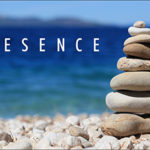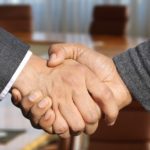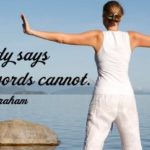Choosing Freedom

Freedom is one of those intriguing distinctions. Everyone wants to be free, and yet, very few choose to be free. In this blog post, I try to distinguish what freedom really means. I also look at the different ways to access freedom. (In this blog post, I am not discussing freedom from the point of view of being free from slavery, detention or oppression. What I have stated here would apply even when there is physical detention and oppression)
What is Freedom?
In the world of generative leadership, we begin with the ‘what’ question. So, the question here is ‘what is freedom’. Freedom comes from two words – ‘free’ and ‘dom’. To be ‘free’ means ‘to not be affected or restricted by a given condition or circumstance’ and, ‘dom’ denotes a ‘state’ or ‘condition’.
So, if we take the literal meaning of freedom, it means, ‘being in a state that is not affected or restricted by a given condition or circumstance.’
After having reflected upon this question, I believe ‘Freedom is a felt experience of being free from restraints in a particular moment.’ You may experience freedom in one moment, and not experience freedom in another. And it could be the other way round too. You could experience restriction in one moment and then the next moment you can experience freedom too.
Freedom comes from exercising choice
You get freedom by most importantly being authentic about moments you do not experience freedom. Only when you get aware that in a particular moment you do not experience freedom, is when you have an opportunity, or an opening, to take the requisite action to start experiencing freedom. And with new awareness comes new choice. And when you have choice, is when you have access to experiencing freedom. When some people make statements like, ‘I cannot do this’, or ‘this is not possible’, it reveals that these people, in those particular moments, are not experiencing freedom.
Many people are blind to the fact that they always have a choice, irrespective of the external circumstances. For example, Helen Keller, a deaf and blind lady, jailed in the dark and soundless prison of her body worked for the American Foundation for the Blind for more than 40 years. She was born in Tuscumbia, Alabama, on June 27, 1880, and became deaf and blind at 19 months. Few could have imagined the leading role she would go on to play in many of the significant political, social, and cultural movements of the 20th century. Until her passing in 1968, she worked unceasingly to improve the lives of people with disabilities[1].
Despite her disability, she exercised choice like many do not. My presumption is that she experienced freedom more often than many of the ‘physically abled’ do. For example, a lot of us get ‘jailed’ by our opinions and judgments that are sub-ordinates are inefficient and hence our job cannot be done / or done on time.
Freedom and Responsibility go hand in hand
Based on my interactions with thousands of program participants, my claim is that most people secretly do not choose freedom; because freedom and responsibility go hand in hand. When you choose freedom, you also choose responsibility. And that is what, I assess, most people are afraid of.
It is always easier to blame someone, rather than take responsibility. The moment you declare that ‘you are the cause’, or take responsibility, you experience freedom. When you make someone else the ‘cause’, you experience restriction.
You have to develop a capacity for freedom
My claim is that freedom is not only having the liberty to do what you like. It is also about having developed a capacity to do what you like.
For example, a 52-year old man experiences restriction in walking. He has a big belly, and is diagnosed with diabetes and hypertension. He has been advised by doctors to regularly exercise and keep himself fit – but he does not do so. In the matter of walking, and in the moments he has to walk up a flight of stairs, he does not experience freedom. That is because in the matter of walking, or in the matter of his body, he has not developed a capacity, and hence he does not experience freedom.
Similarly, there are several people I know who ‘live’ in disempowering emotions. They have not developed a capacity to recreate their emotions, or for that matter recreate their assessments about their environments.
The people that I am referring to here are ones who have not developed a capacity to experience freedom in the domain of their body and / or emotions.
Freedom comes from completion
When there is un-kept promise, or a commitment; when you want to speak to your colleague or spouse about something sensitive, and you avoid doing so; when there is some pending work that you have been ignoring for some time – when any of these, or other incompletions exist, there is an experience of restriction. A lot of times, you may even be blind to this experience of restriction.
Think of a time, when you kept a long outstanding promise; or when you spoke to your spouse or colleague on a matter that discomforted you, but you still spoke about it; or when you completed a pending job – what did you experience in that moment.
My driver’s license had expired, and I kept postponing applying for a new license. Finally, when I did apply and get a new license, I felt a great sense of relief and freedom from that gnawing feeling of something pending.
Freedom in the domain of Body, Emotions and Language
Real freedom is in the freedom of Body, Emotion and Language (BEL). Said in other words – in the domains of body, heart and mind. Here are some questions for you to consider.
1. Have you developed your capacity to be free in the area of your body? To develop this capacity, you have to take care of your body and have a fit body.
2. Have you developed your capacity to be free in the area of your emotions? To develop this capacity, you have to be in the practice of choosing to be in empowering emotions. The question for you is “do you choose your emotions, or do emotions choose you, and you have no choice in this matter?”
3. Have you developed your capacity in the area of your mind, or in the area of what you create in language? To develop this capacity, you need to be aware of what you are creating, moment to moment, and then offer yourself a choice – do I want to go with this creation, or create something else.
Finally, and most importantly, Freedom is to recognize that you are at the source of your truth. You have a choice in creating what is true for you.
[1] American Foundation for the Blind. https://www.afb.org/info/about-us/helen-keller/12
Sameer Dua, Founder Director, Institute for Generative Leadership, India
Schedule a Conversation
Please help us with your details.








